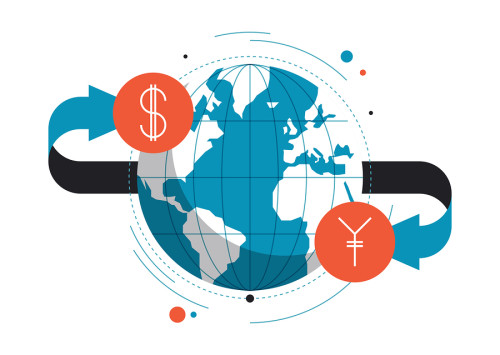Expatriatism is all the rage, especially in the blogging community. Many Westerners are using the power of their stronger home currency, as well as the mobile capabilities of the internet, to start living lives overseas, something that they’ve been dreaming about all of their lives. There are many challenges to make this situation work, though, and more people fail at it than succeed.
In addition to the familial, cultural, and responsibility ties that keep people in the nation of their birth, moving overseas long term is also just plain expensive. Nonetheless there are many ways to save money, enough to make the project seem attainable. Saving on the transfers of your home base salary is one of the most important ways.
Expats typically have money flowing to their new nation of dwelling from their former home nation. Maybe they are working as freelancers. Maybe they have stayed employed through a conventional workplace, but are allowed to travel as long as they work remotely. Most expats are not independently wealthy, so the routine transfer of money is vital to keeping the whole operation afloat.

There are many private companies and big banks which will perform the service for you. But the standards of pricing and service you can expect to receive are by no means the same across the board. Without a familiarity with this industry, it’s easy to get fleeced by companies who are in business to do just that.
Before we describe the new way, I’ll let you in on what to watch out for in the currency transfer industry.
Sometimes a long history isn’t better. Companies that have existed for more than 20 years often have long-established prices. The best companies for this purpose are the ones who have been founded comparatively recently, in an attempt to gain market share by providing a much better deal. Also watch out for any company that wants to charge you more than $10 to transfer your money. In some situations, that’s even high!
Lastly, avoid using conventional banks to perform this simple task. They’ll take a long time, charge you more than necessary, and offer none of the benefits that companies dedicated to currency transfer will provide.
World First international currency transfer is an example of a company that is changing the game, in the customer’s favor. World First offers each customer a dedicated dealer, who can be reached during business hours by phone, email, or chat. This dealer will help the customer find the best possible exchange rates at which to send the money, and allow the customer to lock in these rates for long term regular transfers. Depending on the amount you send, the fees will be low or absent, and in most cases the price you pay is negotiable.
These businesses are growing fast because all of the things I just described are services you won’t get out of a conventional bank, or the old guard of international money transfer. Take a look at their services, investigate some of their also-great competitors, and find out how the new wave of currency transfer can save you loads of money.


